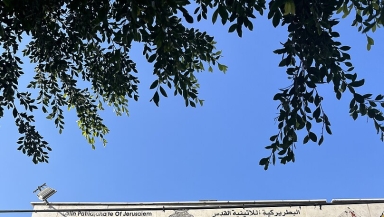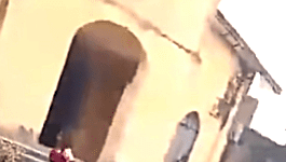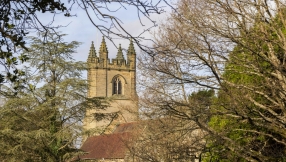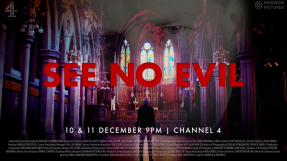
People trapped inside a Gaza church where two Christian women were reportedly killed by sniper fire are living in fear that they will be next, the BBC reports.
Fifa Saba, a Catholic from Gaza who now lives in the US, told BBC Radio 4 that people inside the Holy Family Church feel an "unreal" sense of fear and are too "terrified" to move.
Her sister, her brother-in-law and their two children aged 9 and 12 are all trapped inside the church, and have only limited contact with the outside world.
The Holy Family Church is the only Catholic church in Gaza and is sheltering hundreds of Christians who have been forced to flee their homes because of the war with Israel.
The Latin Patriarchate of Jerusalem released a statement on Saturday blaming the fatal shooting of an elderly Christian woman and her daughter at the church compound on an IDF sniper.
The patriarchate said that no warning had been given and added: "They were shot in cold blood inside the premises of the parish, where there are no belligerents."
A day later, the Pope called attacks on civilians in Gaza "terrorism".
Ms Saba told the BBC that people inside the church "believed the Israelis were shooting anything that moves".
"They were terrified to go to the bathroom, because the women were shot trying to get to the toilet," she said.
Lib Dem MP Layla Moran has also expressed serious concerns about family trapped inside the church.
On Wednesday, she posted on X - formerly Twitter - that tanks were "still outside" the church and that it was "down to almost no provisions".
"I've been told food and water was delivered by the IDF but no sign of it yet. When will this nightmare end?" she said.
Israeli government spokesperson Eylon Levy told LBC Radio that it was a "rather strange incident" and that a "review of the operational findings does not support the allegations presented in that letter by the Latin Patriarchate of Jerusalem".
"We know that Hamas has a long, and documented history, of hiding inside sensitive sites, including religious sites," he said.













